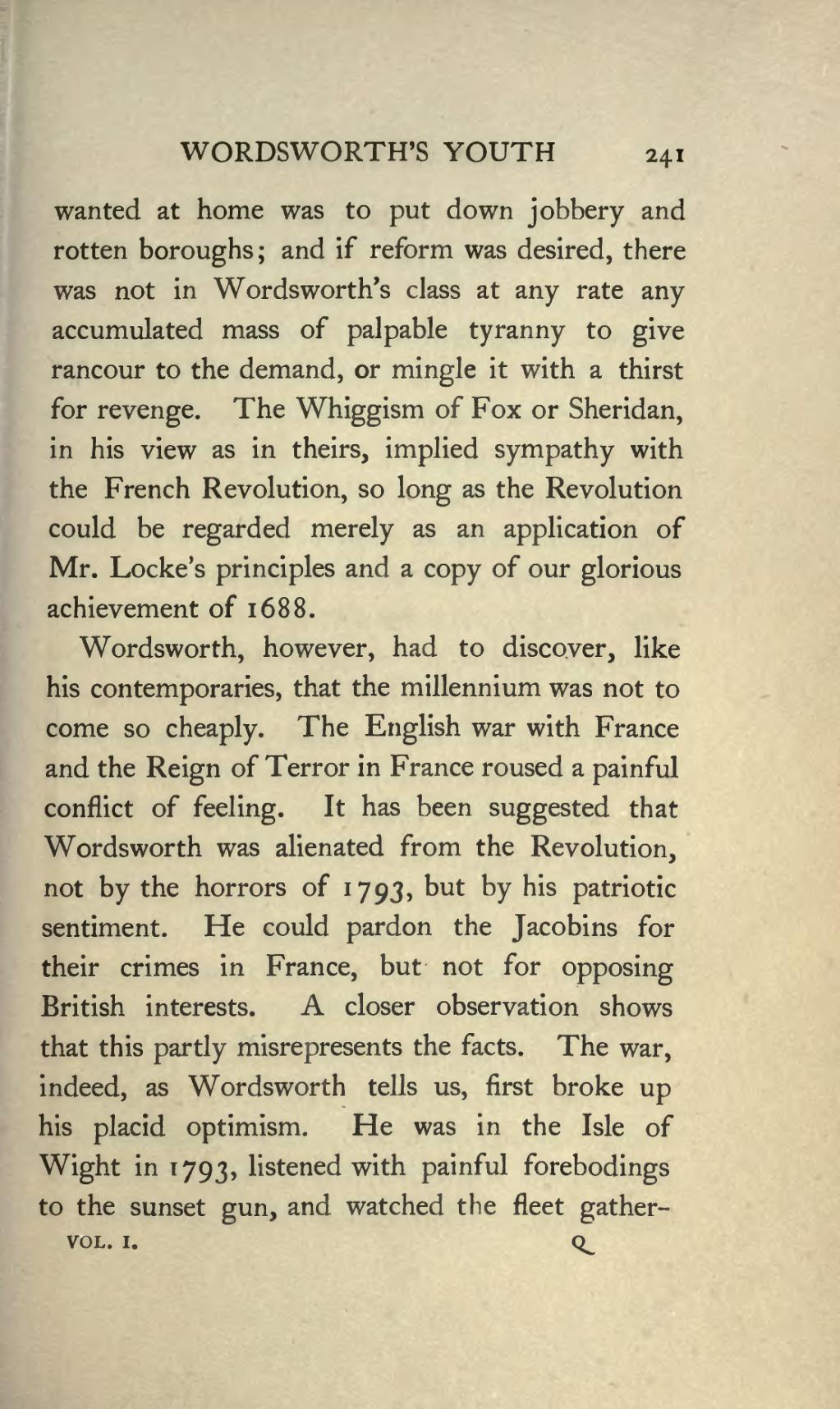wanted at home was to put down jobbery and rotten boroughs; and if reform was desired, there was not in Wordsworth's class at any rate any accumulated mass of palpable tyranny to give rancour to the demand, or mingle it with a thirst for revenge. The Whiggism of Fox or Sheridan, in his view as in theirs, implied sympathy with the French Revolution, so long as the Revolution could be regarded merely as an application of Mr. Locke's principles and a copy of our glorious achievement of 1688.
Wordsworth, however, had to discover, like his contemporaries, that the millennium was not to come so cheaply. The English war with France and the Reign of Terror in France roused a painful conflict of feeling. It has been suggested that Wordsworth was alienated from the Revolution, not by the horrors of 1793, but by his patriotic sentiment. He could pardon the Jacobins for their crimes in France, but not for opposing British interests. A closer observation shows that this partly misrepresents the facts. The war, indeed, as Wordsworth tells us, first broke up his placid optimism. He was in the Isle of Wight in 1793, listened with painful forebodings to the sunset gun, and watched the fleet gather-
